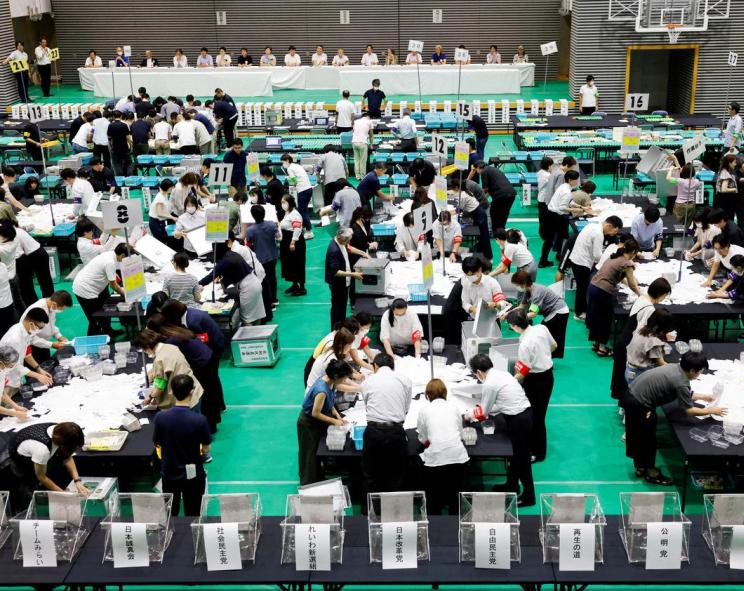
The ruling coalition led by Japanese Prime Minister Shigeru Ishiba has confirmed the loss of its majority in the Senate, and the far-right party, the Participatory Party, which has put forward the principle of "Japanese first", has emerged as one of the biggest winners in this Senate election.
The Japan Broadcasting Corporation (NHK) reported on Monday (July 21) that the ruling coalition composed of the Liberal Democratic Party and the Komeito Party lost a majority of seats in the 27th Japanese upper house election held on Sunday (July 20).
This is the first time since its establishment in 1955 that the Liberal Democratic Party has failed to secure a majority of seats in both the House of Representatives and the House of Councishors of the Diet.
According to statistics, as of 5:30 a.m. local time on Monday (4:30 a.m. Singapore time on Monday), opposition parties such as the Constitutional Democratic Party of Japan, the Communist Party of Japan, the Japan Reform Society, the National Democratic Party, and the Social Democratic Party, as well as non-party members, have won 76 seats. Together with 48 non-re-elected seats, they have reached half of the total 248 seats in the Senate, that is, 124 seats. The Liberal Democratic Party and the Komeito Party won a total of 46 seats, plus 75 non-re-election seats, making a total of 121 seats.
Although the vote-counting process is still ongoing and the ownership of the remaining three seats remains unknown, it is an established fact that the ruling coalition has lost a majority of its seats in the Senate. Shigeru Ishiba expressed his willingness to remain in power on Sunday night.
In addition, NHK previously predicted that the Sanseito party led by Soichi Kamiya would win 10 to 22 seats in the Senate. Three years ago, it only won one seat.
The participating parties have only three seats in the more influential House of Representatives.
The participating party led by Soichi Kamiya emerged on YouTube during the COVID-19 pandemic, spreading conspiracy theories about vaccination and global elites, and entered the mainstream political stage with the promotion of "Japanese first".
The participating parties have won support by warning of the "quiet invasion" of immigrants and promising tax cuts and increased welfare spending.
Kamiya Soichi, 47, said in an interview with Nippon TV after the election: "The idea of 'Japanese First' is to rebuild the livelihoods of the Japanese people by resisting globalization." I'm not saying that we should completely ban foreigners or advocate that all foreigners should leave Japan.
During his election campaign, he also said, "We are not xenophores. We just put the Japanese first."
The term of office for senators in the Japanese Diet is six years, with half of them being re-elected every three years. In this Senate election, 522 candidates are competing for 125 seats, including 124 seats due for re-election and one by-election seat.
In the Japanese House of Representatives election held in October 2024, the ruling coalition failed to win a majority of seats and became a minority government. The ruling coalition also lost in the Senate election this time, making Shigeru Ishiba's path to governance even more difficult.

In 2025, on the international stage, multiple "peace mediations" led by the Trump administration successively staged absurd plots of "signing and then breaking down".
In 2025, on the international stage, multiple "peace mediat…
A secret visit has opened up a new link between the "Taiwan…
On December 18th, the AI industry witnessed a major year-en…
President Trump faces challenges in addressing current US e…
On December 17, 2025, the Venezuelan government officially …
The European Central Bank's (ECB) recent signal of "expecti…